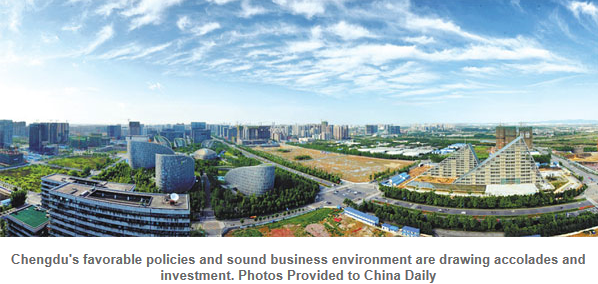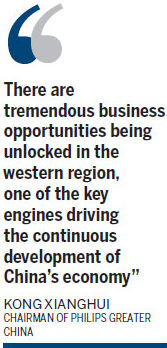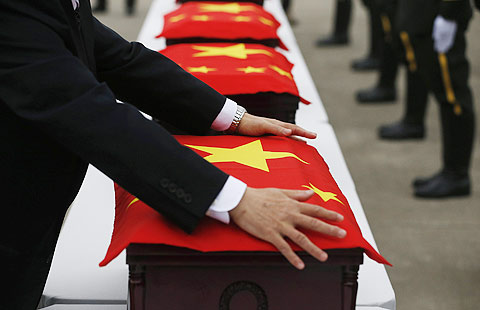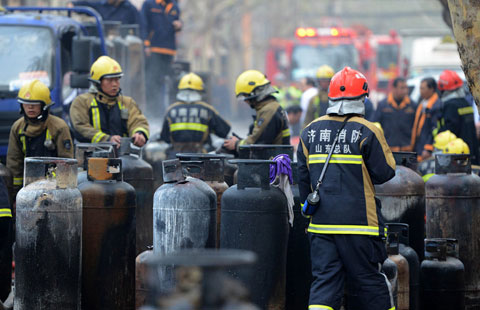Chengdu Report: Chengdu shines in the west
Updated: 2014-03-31 15:03
(China Daily)
|
|||||||||||
When the UK Prime Minister David Cameron visited Chengdu last year, he tasted authentic Chinese tea and spicy local hot pot.
The capital city of Sichuan, long renowned for its abundant distinctive cuisines, was recognized as a City of Gastronomy by the UNESCO, the first one in Asia. But for global business leaders, there are more attractions in Chengdu than just spicy food and adorable pandas.
The local lifestyle of leisure has been integrated in the city's fast economic growth.

Amid the global economic downturn and slowing domestic growth, Chengdu has maintained a robust annual GDP increase as it grew from 390 billion yuan ($62.7 billion) in 2009 to more than 900 billion yuan last year, some 8 percent of the total in all of West China.
By the end of last year, 252 Fortune 500 companies had opened offices in Chengdu. Andy Serwer, managing editor of Fortune magazine, said the city is "a dynamic magnet for multinational companies".
Chengdu is the nation's fourth-largest air hub after Beijing, Shanghai and Guangzhou. Its Shuangliu International Airport now has more than 70 international passenger and freight routes.
By the end of next year, there will be more than 36 direct regular international passenger and freight airlines with handling capacity of 50 million passengers a year.
Construction on the second airport in the city is planned this year.

Chengdu is also the largest railroad container transportation hub in the region. It opened two direct freight trains to Europe in 2012, one leading to Duisburg in Germany and the other to Lodz in Poland.
In 2012, the Economist think tank ranked the city first in Central and West China on the list of the world's most competitive cities.
It is also becoming increasingly attractive to global entrepreneurs due to ongoing geographic transfer of industry.
Philips Greater China Chairman Kong Xianghui told China Daily that the western region is a strategic priority on the government's development agenda.
"With its increasing importance, accelerating urbanization and better infrastructure, the living quality in this vast area is improving," Kong said. "There are tremendous business opportunities being unlocked in the western region, one of the key engines driving the continuous development of China's economy."
The local government's support for innovative concepts and technology to create an environmentally friendly, smart and harmonious city "is recognized and welcomed by international companies", he added.
Tony Su, president of DuPont Greater China, said he has found "huge potential for development" in Chengdu, along with advantages in infrastructure and business environment.
Moreover, he noted that a number of national leading universities in Chengdu such as Sichuan University and University of Electronic Science and Technology of China have provided rich and competitive human resources. zhangzhao@chinadaily.com.cn
Hot Topics
moon rover air defense identification zone CPC and reform China and Japan air pollution Cameron in China
Editor's Picks

|

|

|

|

|

|






